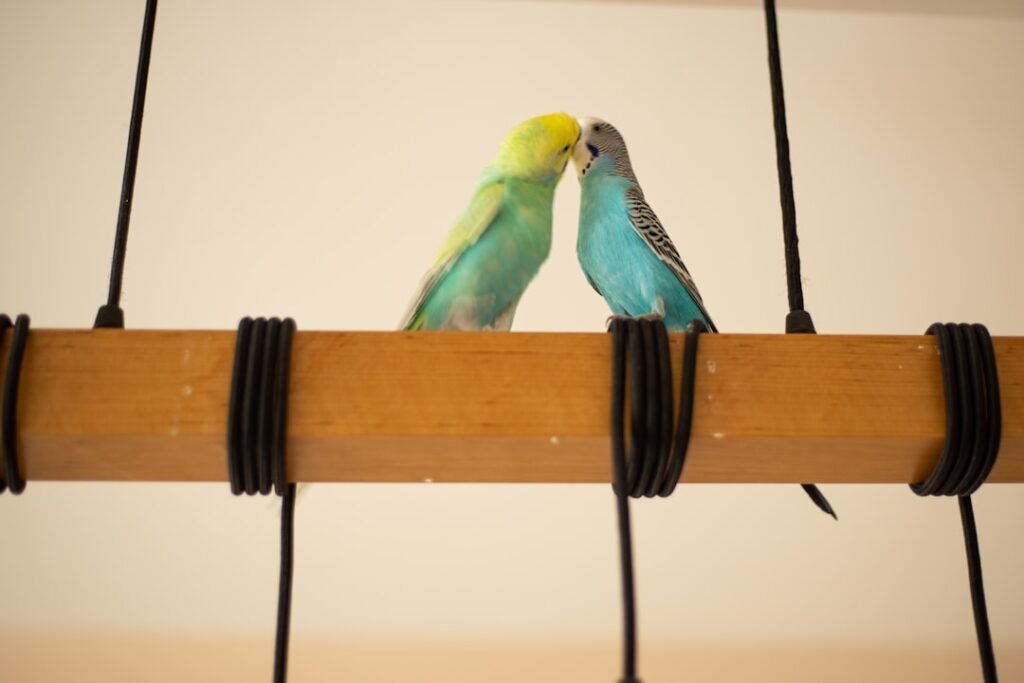Parakeets, also known as budgerigars, are small, colorful birds that are popular pets around the world. Like all animals, parakeets require a balanced diet to maintain their health and well-being. A proper diet for a parakeet consists of a variety of foods that provide essential nutrients such as vitamins, minerals, proteins, and carbohydrates.
A balanced diet is crucial for parakeets because it helps support their immune system, promotes healthy growth and development, and prevents nutritional deficiencies. Without a proper diet, parakeets can suffer from a range of health problems including weakened immune systems, stunted growth, and even death.
Key Takeaways
- Parakeets have specific nutritional requirements that must be met through a balanced diet.
- Lettuce can be a healthy addition to a parakeet’s diet, but it should not be the sole source of nutrition.
- Safe types of lettuce for parakeets include romaine, green leaf, and red leaf lettuce.
- Lettuce can provide health benefits such as hydration and vitamin C for parakeets.
- Overconsumption of lettuce can lead to potential risks such as diarrhea and nutrient deficiencies in parakeets.
The Role of Lettuce in Parakeet Diet
Lettuce is a popular choice for parakeet owners because it is readily available and easy to prepare. It is also low in calories and high in water content, making it a healthy choice for parakeets. Lettuce is also rich in vitamins A and K, which are essential for maintaining healthy eyesight and blood clotting.
Types of Lettuce Safe for Parakeets
Not all types of lettuce are safe for parakeets to consume. Iceberg lettuce, for example, should be avoided as it has little nutritional value and can cause digestive problems in parakeets. However, there are several types of lettuce that are safe and healthy for parakeets to eat.
Some safe options include romaine lettuce, green leaf lettuce, red leaf lettuce, and butterhead lettuce. These varieties are rich in vitamins and minerals and have a higher nutritional value compared to iceberg lettuce.
Health Benefits of Lettuce for Parakeets
| Health Benefits of Lettuce for Parakeets |
|---|
| 1. Rich in Vitamins and Minerals |
| 2. Helps with Digestion |
| 3. Promotes Hydration |
| 4. Low in Calories |
| 5. Contains Antioxidants |
| 6. Supports Immune System |
| 7. Aids in Weight Management |
Lettuce offers several health benefits for parakeets. Firstly, it provides hydration due to its high water content. This is especially important during hot weather or if your parakeet is not drinking enough water. Lettuce also contains fiber, which aids in digestion and helps prevent constipation.
Additionally, lettuce is a good source of vitamins A and K, which are essential for maintaining healthy eyesight and blood clotting. These vitamins also support the immune system and help prevent diseases. Lettuce also contains antioxidants, which can help protect against cell damage and reduce the risk of certain diseases.
Potential Risks of Lettuce Consumption for Parakeets
While lettuce can be a healthy addition to a parakeet’s diet, there are some potential risks associated with feeding it to them. One risk is the presence of pesticides or other chemicals on the lettuce. It is important to thoroughly wash and rinse lettuce before feeding it to your parakeet to remove any potential contaminants.
Another risk is overfeeding lettuce, as it can lead to digestive problems such as diarrhea or an upset stomach. It is important to feed lettuce in moderation and ensure that it is only a part of a balanced diet that includes other vegetables, fruits, and seeds.
Other Vegetables Suitable for Parakeet Diet

In addition to lettuce, there are several other vegetables that are safe and healthy for parakeets to consume. Some examples include carrots, bell peppers, broccoli, spinach, and kale. These vegetables provide a variety of nutrients such as vitamins A, C, and K, as well as minerals like calcium and iron.
Carrots are a good source of vitamin A, which is important for maintaining healthy eyesight. Bell peppers are rich in vitamin C, which supports the immune system. Broccoli is high in fiber and contains vitamins A and C. Spinach and kale are both rich in vitamins A and K.
The Importance of a Balanced Parakeet Diet
A balanced diet is crucial for parakeets because it provides them with the necessary nutrients they need to thrive. A diet that is lacking in certain nutrients can lead to health problems such as weakened immune systems, stunted growth, and nutritional deficiencies.
To achieve a balanced diet for your parakeet, it is important to provide a variety of foods that include fruits, vegetables, seeds, and pellets. This will ensure that your parakeet receives all the essential nutrients they need for optimal health.
How Much Lettuce Should Parakeets Consume?
While lettuce can be a healthy addition to a parakeet’s diet, it should be fed in moderation. Too much lettuce can lead to digestive problems such as diarrhea or an upset stomach. It is recommended to feed lettuce to your parakeet as a treat or as part of a larger meal that includes other vegetables, fruits, and seeds.
A general guideline is to offer a small amount of lettuce once or twice a week. This will provide your parakeet with the nutritional benefits of lettuce without overloading their digestive system.
Signs of Lettuce Allergies or Intolerance in Parakeets
Just like humans, parakeets can develop allergies or intolerances to certain foods, including lettuce. If your parakeet is allergic or intolerant to lettuce, they may exhibit symptoms such as diarrhea, vomiting, or changes in behavior.
If you suspect that your parakeet is allergic or intolerant to lettuce, it is important to remove it from their diet and consult with a veterinarian. They can help determine the cause of the symptoms and provide guidance on how to modify your parakeet’s diet accordingly.
Incorporating Lettuce into a Safe and Healthy Parakeet Diet
Incorporating lettuce into a parakeet’s diet can be a healthy choice as long as it is done in moderation and as part of a balanced diet. Lettuce provides hydration, fiber, vitamins, and minerals that are beneficial for parakeets. However, it is important to choose the right types of lettuce and to wash it thoroughly to remove any potential contaminants.
In addition to lettuce, there are several other vegetables that are safe and healthy for parakeets to consume. These vegetables provide a variety of nutrients that support overall health and well-being. By providing a balanced diet that includes a variety of foods, you can ensure that your parakeet receives all the essential nutrients they need to thrive.


